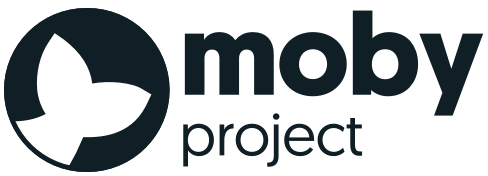From the mailing list: We have just released Go versions 1.19.1 and 1.18.6, minor point releases. These minor releases include 2 security fixes following the security policy: - net/http: handle server errors after sending GOAWAY A closing HTTP/2 server connection could hang forever waiting for a clean shutdown that was preempted by a subsequent fatal error. This failure mode could be exploited to cause a denial of service. Thanks to Bahruz Jabiyev, Tommaso Innocenti, Anthony Gavazzi, Steven Sprecher, and Kaan Onarlioglu for reporting this. This is CVE-2022-27664 and Go issue https://go.dev/issue/54658. - net/url: JoinPath does not strip relative path components in all circumstances JoinPath and URL.JoinPath would not remove `../` path components appended to a relative path. For example, `JoinPath("https://go.dev", "../go")` returned the URL `https://go.dev/../go`, despite the JoinPath documentation stating that `../` path elements are cleaned from the result. Thanks to q0jt for reporting this issue. This is CVE-2022-32190 and Go issue https://go.dev/issue/54385. Release notes: go1.18.6 (released 2022-09-06) includes security fixes to the net/http package, as well as bug fixes to the compiler, the go command, the pprof command, the runtime, and the crypto/tls, encoding/xml, and net packages. See the Go 1.18.6 milestone on the issue tracker for details; https://github.com/golang/go/issues?q=milestone%3AGo1.18.6+label%3ACherryPickApproved Signed-off-by: Sebastiaan van Stijn <github@gone.nl> |
||
|---|---|---|
| .github | ||
| api | ||
| builder | ||
| cli | ||
| client | ||
| cmd | ||
| container | ||
| contrib | ||
| daemon | ||
| distribution | ||
| dockerversion | ||
| docs | ||
| errdefs | ||
| hack | ||
| image | ||
| integration | ||
| integration-cli | ||
| internal/test/suite | ||
| layer | ||
| libcontainerd | ||
| libnetwork | ||
| oci | ||
| opts | ||
| pkg | ||
| plugin | ||
| profiles | ||
| project | ||
| quota | ||
| reference | ||
| registry | ||
| reports | ||
| restartmanager | ||
| rootless | ||
| runconfig | ||
| testutil | ||
| vendor | ||
| volume | ||
| .DEREK.yml | ||
| .dockerignore | ||
| .gitattributes | ||
| .gitignore | ||
| .mailmap | ||
| AUTHORS | ||
| CHANGELOG.md | ||
| codecov.yml | ||
| CONTRIBUTING.md | ||
| docker-bake.hcl | ||
| Dockerfile | ||
| Dockerfile.e2e | ||
| Dockerfile.simple | ||
| Dockerfile.windows | ||
| Jenkinsfile | ||
| LICENSE | ||
| MAINTAINERS | ||
| Makefile | ||
| NOTICE | ||
| README.md | ||
| ROADMAP.md | ||
| SECURITY.md | ||
| TESTING.md | ||
| vendor.mod | ||
| vendor.sum | ||
| VENDORING.md | ||
The Moby Project
Moby is an open-source project created by Docker to enable and accelerate software containerization.
It provides a "Lego set" of toolkit components, the framework for assembling them into custom container-based systems, and a place for all container enthusiasts and professionals to experiment and exchange ideas. Components include container build tools, a container registry, orchestration tools, a runtime and more, and these can be used as building blocks in conjunction with other tools and projects.
Principles
Moby is an open project guided by strong principles, aiming to be modular, flexible and without too strong an opinion on user experience. It is open to the community to help set its direction.
- Modular: the project includes lots of components that have well-defined functions and APIs that work together.
- Batteries included but swappable: Moby includes enough components to build fully featured container system, but its modular architecture ensures that most of the components can be swapped by different implementations.
- Usable security: Moby provides secure defaults without compromising usability.
- Developer focused: The APIs are intended to be functional and useful to build powerful tools. They are not necessarily intended as end user tools but as components aimed at developers. Documentation and UX is aimed at developers not end users.
Audience
The Moby Project is intended for engineers, integrators and enthusiasts looking to modify, hack, fix, experiment, invent and build systems based on containers. It is not for people looking for a commercially supported system, but for people who want to work and learn with open source code.
Relationship with Docker
The components and tools in the Moby Project are initially the open source components that Docker and the community have built for the Docker Project. New projects can be added if they fit with the community goals. Docker is committed to using Moby as the upstream for the Docker Product. However, other projects are also encouraged to use Moby as an upstream, and to reuse the components in diverse ways, and all these uses will be treated in the same way. External maintainers and contributors are welcomed.
The Moby project is not intended as a location for support or feature requests for Docker products, but as a place for contributors to work on open source code, fix bugs, and make the code more useful. The releases are supported by the maintainers, community and users, on a best efforts basis only, and are not intended for customers who want enterprise or commercial support; Docker EE is the appropriate product for these use cases.
Legal
Brought to you courtesy of our legal counsel. For more context, please see the NOTICE document in this repo.
Use and transfer of Moby may be subject to certain restrictions by the United States and other governments.
It is your responsibility to ensure that your use and/or transfer does not violate applicable laws.
For more information, please see https://www.bis.doc.gov
Licensing
Moby is licensed under the Apache License, Version 2.0. See LICENSE for the full license text.
